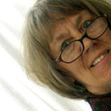Yet More Tragedy
Longtime readers here will know my views on the Middle East situation, and that those views come from many years of familiarity with the cultures and societies in question. So it's probably no surprise that I am feeling pretty sad and discouraged about the latest escalation of violence, and the fact that nearly 100 Palestinians are now dead as a result, with countless more injured.
When are we human beings finally going to internalize the lesson that violence simply begets violence, and that the cycle of retaliation never ends? When are we going to understand that no one is better, purer, more exceptional, or more chosen than anyone else on this planet?
To blame all of this on religion is a cop-out. Yes, religion has been responsible for a great deal of suffering and war throughout history. But ethnic conflict, based often on the conviction that one group is superior to another, has also played a very large part. It doesn't matter where the idea of exceptionalism comes from, or who originates that narrative, it always points to the same ends: prejudice, inequality, oppression, exploitation, separation, subjugation, expulsion, violence and ultimately genocide. These actions are always justified by the powerful who believe that their lives are worth more than the people they are oppressing, and who create a convincing narrative of how threatened they themselves are by the less powerful group.
A decade and a half ago, as some of you know, my husband and I helped from a Muslim-Christian group that met once a month for prayer and friendship, sharing our stories and celebrations and a meal. We met for three years, from the second Intifada through 9/11 and the beginning of the Iraq war. During that time we made repeated personal invitations to the Jewish community to join us. I met with the local Rabbi who assured me of his support, but neither he nor any of the members of the local synagogue ever came to a meeting. I am very sorry about that, because we all could have learned a lot from one another. We did work together with some Jewish anti-war protesters, almost all women who were part of the group Women in Black. Some of the people who joined our weekly street-corner protests against the Iraq war and Israeli violence in Gaza were Jewish, and very courageous for the stand they were taking for peace. One of those people was the poet Grace Paley, who I was privileged to know. Another was Susannah Heschel, professor at Dartmouth and daughter of Abraham Heschel. Like my dear friend Rabbi Rachel Barenblat, their voices truly were crying in the wilderness -- not too pejorative a term for America on this particular topic. In Israel itself, the moderate and progressive voice has always been much stronger and more consistent, but the government -- like the U.S. wars in Afghanistan and Iraq and the ongoing drone war against "terrorists" that has killed countless civilians, women, and children -- has consistently taken a different path, one which has made the world far less safe and far more radicalized than it was in 2000.
A group of pilgrims from our cathedral recently went to the Holy Land, spending quite a lot of time in Palestine. They met with Parents without Borders, and heard the stories of Palestinian and Jewish parents who have worked tirelessly for peace, while grieving their own personal tragedies. We don't hear enough of those stories in our media here, and we don't do nearly enough to support peace efforts, hospitals, schools, cultural and relief programs that are attempting to care for the victims of this awful conflict without regard to their ethnicity or religion.
Please don't use the comment box to take sides and argue about politics; it is utterly pointless and if that starts happening -- as it does whenever I've mentioned this issue here -- I will close the comments. We need to find solutions, and to look deep within ourselves. This is an ongoing tragedy in which Americans participate through our tax dollars, and which will ultimately affect us all. Ask yourself what you can actually do. I try to continue to act in memory of my father-in-law and mother-in-law, both of whom experienced these conflicts first-hand, but also lived in Damascus and Beirut and Alexandria at a time when all three religions lived together harmoniously. Inpired by the knowledge that this was possible, thay always hoped and worked for a better world for their children.



